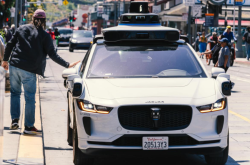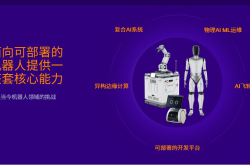Is this Google's last chance to outdo Apple?
![]() 08/23 2024
08/23 2024
![]() 552
552
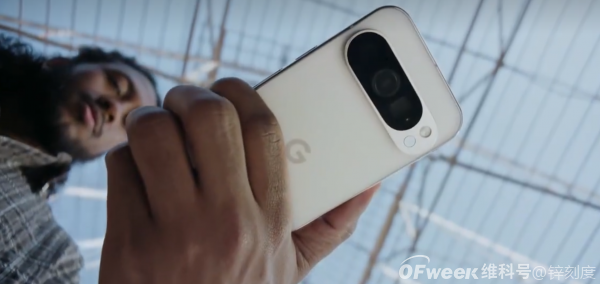
The mobile phone market is desperate for new stories
Written by Li Jinlin
Edited by Chen Dengxin
Typeset by Annalee
According to tradition, the ninth Made by Google event, which usually takes place in October, was held two months earlier this year, ahead of Apple's new product launch event, with a hint of a declaration of war.
AI was the absolute star of the show and Google's secret weapon to 'turn the table.' According to The New York Times, the Pixel 9 series of phones launched by Google included almost all the cutting-edge AI technologies they could fit in. Although Google phones have not had a high global market share in the past, their efforts in the AI phone sector are seen as an opportunity for a curveball overtake.
Google has made no secret of its intention to compete with Apple, subtly hinting at this by stating that its products do not rely on third-party AI providers, a veiled dig at Apple's plans to integrate ChatGPT into Siri through its collaboration with OpenAI.
In fact, 2024 has already been designated as the 'first year of AI phones,' with mainstream manufacturers following the 'All in AI' trend. Compared to Google, which has a lower market share and less attention, domestic phone manufacturers seem to have placed their bets earlier, with Huawei, Xiaomi, OPPO, and Vivo all deploying large models on their phones. AI is not only a new story to boost consumers' willingness to upgrade their phones but also another 'iPhone moment' that phone manufacturers are waiting for.
AI, a new opportunity for Android
Regarding Google's new Pixel 9 series, Bloomberg journalist Mark Gurman commented after reviewing it that Apple is at least two to three years behind Google in AI technology.
Facing Apple, the dominant player in the mobile phone market, Google seems to have found a new approach with AI.
This new product launch event, which was held two months earlier than usual, focused heavily on AI. For example, the Pixel 9 series not only upgraded its cameras and chips but also deeply integrated AI technology into various Android system applications.
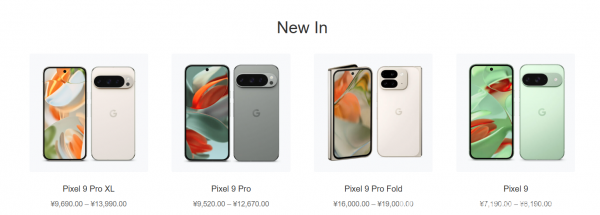
Image source: Google Phone Official Website
One of the main selling points of the Pixel 9 series is its AI camera, which Google claims to be the 'world's first AI-powered camera.' Another highlighted feature is the 'Gemini AI' chatbot, which not only strives to prove that its AI functions are no longer 'artificial stupidity' but also subtly takes a dig at competitors. According to Sameer Samat, President of Android and Google Play, 'Gemini supports 45 languages, covers more than 200 countries and regions, and does not rely on third-party AI providers.'
Both of these points are directed at Apple.
As everyone knows, when Apple held WWDC 2024 in June, it proudly introduced how powerful Apple Intelligence's data processing and contextual awareness capabilities are, capable of providing users with more personalized intelligent services, but this was limited to English-speaking users in the United States this year.
Furthermore, Apple's collaboration with OpenAI to integrate ChatGPT into iOS, iPadOS, and macOS systems sparked controversy over privacy protection. Google, on the other hand, emphasizes the end-to-end security of Gemini AI Assistant, claiming that user data will not be handed over to third-party AI providers for processing.
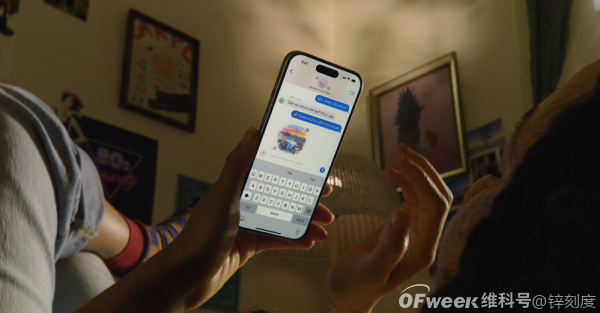
Apple plans to integrate ChatGPT into Siri in collaboration with OpenAI
In the AI race, Google is ambitious, aiming to use Android's vast user base and widespread device coverage to achieve a curveball overtake. However, many industry insiders believe that even though AI brings a new story, Google's low market share in phones is not enough to change the global competitive landscape. Where Google's AI phones can truly exert a greater advantage is in their impact on the development of the entire Android ecosystem.
However, a more realistic problem is that Google phones only have a market share of around 5% in the United States and even lower in markets like the UK, Germany, and India, making it difficult for them to gain a voice in the consumer market. Moreover, Chinese manufacturers have already deployed their own AI strategies in recent years, making it challenging for Google to become a new choice for users.
Essentially, it's a battle for OS transformation
PCs and mobile phones are the two most suitable carriers for AI, with the former capable of handling complex AI algorithms and large datasets and the latter covering almost all scenarios in life, making it the best medium for users to accept and get used to AI applications. Major manufacturers are rushing to occupy the entrance to the mobile AI era by developing AI phones.
Judging from the products and technological innovations brought by Google this time, it is obvious that they hope to compensate for their hardware disadvantages through AI technology, reshape the functions and user experience of smart phones, and win a place in the market competition. As for Apple, despite facing questions about privacy and technology, it still has plenty of room for growth given its substantial market share.
Furthermore, the AI features presented at Apple's WWDC 2024 are notably different from those of other phone brands. For example, the new system's built-in 'Image Playground' tool not only allows users to generate images from text or sketches, supports Apple's native apps like Messages, Reminders, and Infinite Canvas, but can also be called by third-party apps. Based on Apple's robust software ecosystem, this will become a significant difference that sets Apple's AI phones apart from other brands in terms of user experience.
Many people say that AI phones are just a gimmick, but judging from the investment level of various manufacturers, the current competition for AI phones is essentially more like a battle for OS transformation. This has been evidenced by a series of actions taken by domestic phone manufacturers since last year.
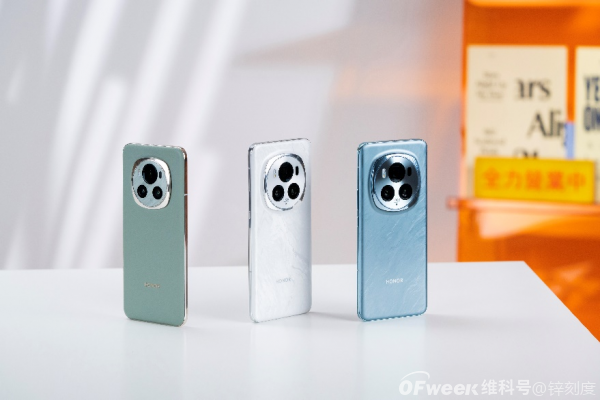
The Magic6 series showcases Honor's progress in AI technology
In August 2023, Huawei launched the HarmonyOS NEXT developer preview version;
In October 2023, Xiaomi released its self-developed mobile operating system, 'Xiaomi Pengpai OS';
In November 2023, vivo unveiled its self-developed Blue River operating system, 'BlueOS,' while OPPO announced the upgraded ColorOS 14 at the 10th anniversary of ColorOS, supported by three major technologies: its self-developed Pantanal system, AndesGPT, and ColorOS Supercomputing Platform;
In January this year, Honor released its self-developed operating system, 'MagicOS 8.0'.
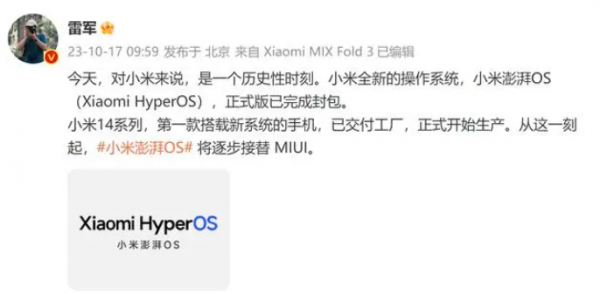
However, this does not mean that domestic phone manufacturers' self-developed operating systems are becoming mainstream. According to market research firm Counterpoint, in Q1 2024, the global mobile phone system market share was dominated by Android, iOS, and HarmonyOS, with specific shares of 77%, 19%, and 4%, respectively, almost dividing the entire global mobile phone market share among them.
These figures indicate that the Android system still has a strong dominance, which is the cornerstone for Google's plan to leverage AI to shake up the market. 'We are rebuilding the operating system centered on AI and redefining the functions of mobile phones,' said Sameer Samat, President of Android and Google Play, at the conference.
Subsequently, it was quickly revealed that domestic phone manufacturers such as Xiaomi and OPPO were collaborating with Google, leveraging Google's Gemini model and Google Cloud for their international market launches. In OPPO's specific collaboration with Google, OPPO's international models will integrate Google Gemini, while the Chinese models will use OPPO's self-developed AI large model.
Speaking of the current trend of intense competition in AI phones, the development level of edge-side AI is a crucial factor driving the replacement cycle of consumer electronics and an important aspect in verifying whether manufacturers' significant investments in AI technology this year have successfully achieved a commercial closed loop. The comprehensive upgrade of operating systems and ecosystems is also a key aspect of fierce competition.
What is a needed AI phone
After feature phones and smartphones, the AI phone era has become the third stage of mobile phone industry development, focusing on technological transformation and industry reshuffling.
However, an important background to this transformation is that the mobile phone market has been desperate for new stories for a long time.
IDC's 'Worldwide Quarterly Mobile Phone Tracker' report shows that global smartphone shipments declined by 3.2% year-on-year to 1.17 billion units in 2023, the lowest annual shipment volume in a decade.
In other words, in recent years, AI will be an essential lever to stimulate consumption in the mobile phone market and a new opportunity for phone manufacturers to seize market share when another 'iPhone moment' arrives.
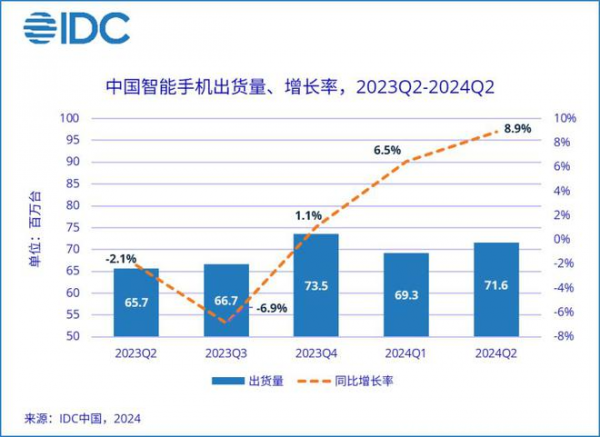
As analyzed earlier, the competition for OS transformation is a crucial aspect of the intense competition in the AI phone era. However, when it comes to practical issues, for consumers to pay for AI, the convenience that can be genuinely perceived is crucial. Currently, major manufacturers are collectively investing heavily in AI image processing precisely because it is the function that most easily demonstrates AI achievements and is most easily experienced by consumers.
Liu Zuohu, Founder and CEO of OnePlus, bluntly stated on Weibo, 'Our team often proposes many 'innovative' AI features, and I reject many of their ideas. I hope they can think clearly about two questions: 1. Is it a scenario that users use every day? 2. Is it something users really want but are not currently satisfied with?'
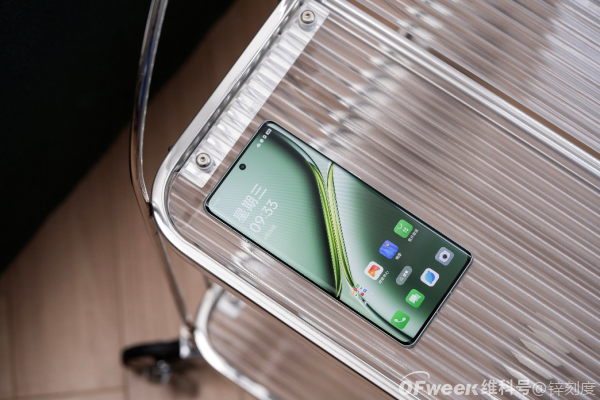
OnePlus Ace 3 Pro
Indeed, the accelerating approach of the AI phone era has made it easy to tell stories and create buzz. In this 'first year of AI phones,' every company can present impressive AI phones, but consumers may not genuinely need or be willing to pay for them. In the short term, AI can only be a value-added function for consumers rather than a necessary requirement.
As for phone manufacturers that are all in on AI, storytelling is secondary. The experience upgrade brought about by technology investment is the real advantage in the next era. Smartphones that provide personalized experiences based on user data are truly needed AI phones.





